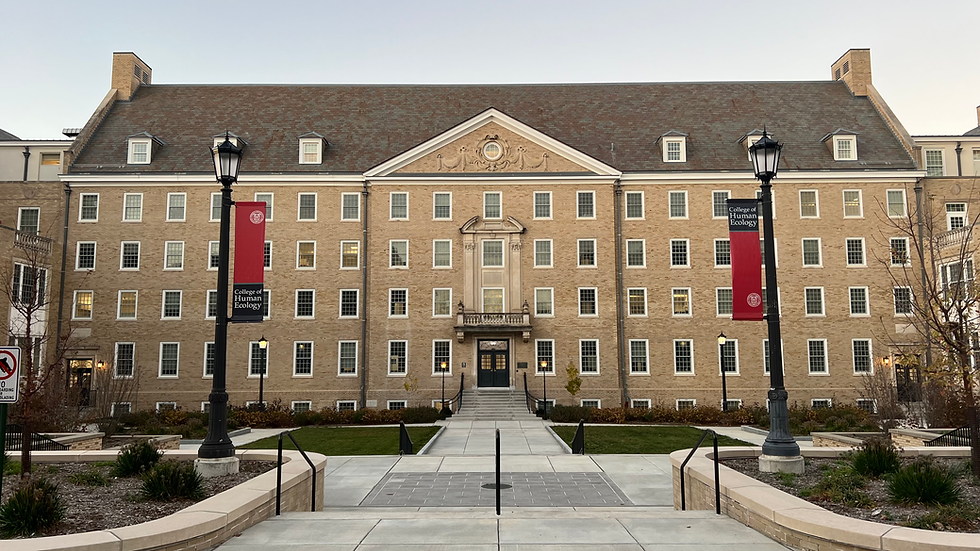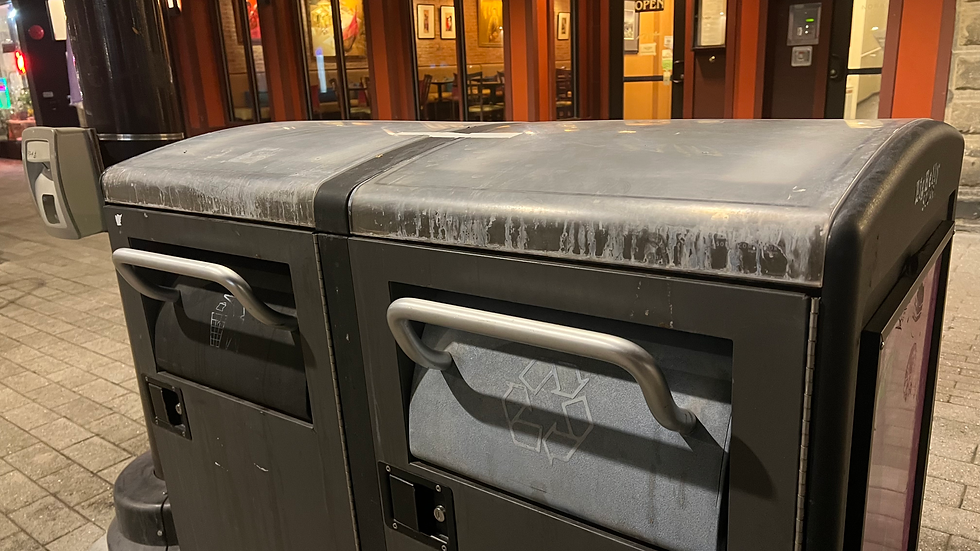Cornell University Professors Express Thoughts on Sustainability
- Kathryn Ksiazek

- Nov 11, 2022
- 3 min read
Ithaca, NY is home to beautiful natural scenery, like its famous gorges. So it’s no wonder the city aims to be a leader in sustainability, as stated on the Town of Ithaca website. Professors from Cornell University, located in Ithaca, share some tips and ideas on how an average person can be more sustainable.

Sustainable Shopping
From a young age, kids are taught to “reduce, reuse, recycle.” Rhonda Gilmore, a senior lecturer at Cornell’s College of Human Ecology, shared what this means to her.
“I think the number one tenet or philosophy that I try to teach is to not consume anything that can’t be either composted or recycled,” said Gilmore.
While recycling is better for the environment than simply throwing something out, it is the last step to the “reduce, reuse, recycle” process. It is important to keep the environment in mind while making the initial purchase of an item. Not every item is fit for recycling, some things are designed to end up in landfills.
There are hundreds of certification systems that are in place to let shoppers know whether an item is environmentally friendly or not. Gilmore confessed that teaching students each label is exhausting and time-consuming. She hopes that one day, there will be a single certification that will let a shopper know whether an item is sustainable.
Gilmore also stated that she avoids anything packaged in plastic. Buying items in more sustainable materials, such as paper cartons, is just one simple way that a person can be more mindful of how their purchases affect the environment.
As for items that are difficult to find in sustainable packaging, Gilmore explains that she trusts the Ithaca recycling system.

“I know that I live in a community that will take care of those recycled materials because we have a really great recycling facility that we built,” said Gilmore. “My tax dollars built that facility, and I live here because I didn't mind paying that extra money to know that all of my plastics that I can't reuse will be recycled.”
Gilmore also explained that she avoids shopping online because of the large amount of packaging materials that go into shipping items.
“You have a lot of power as a consumer,” said Gilmore. “I find that being a much more knowledgeable consumer can make a huge difference.”
It Starts at Home
New technologies make lives so much easier, but many have become dependent on technologies such as air conditioners or constantly heating buildings, even when unnecessary.
Ying Hua, an associate professor with a background in architecture from Cornell’s College of Human Ecology, believes that there are many easy ways to be more environmentally friendly from our own homes.
Hua explained that just lowering the temperature a few degrees in the winter, even as little as two degrees, can reduce a building’s heating energy consumption to a level that will have less of a negative impact on the climate.
This small change can be very positive, said Hua. “And then this almost doesn’t take any investment,” she added.
Hua believes that being more environmentally friendly is about redefining our comfort levels. It can be as simple as letting the sun heat your house when possible or wearing warmer clothes inside.
“Part of it is about being smart. I don’t think ‘smart’ always means AI or the best technology or state of the art equipment,” said Hua. “But actually, it’s sort of understanding nature and understanding the resources better. This is the smarter thing to do.”


Comments